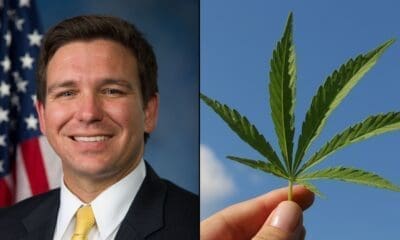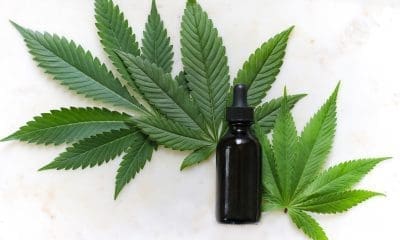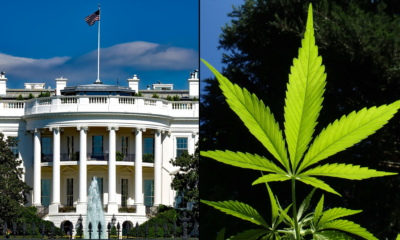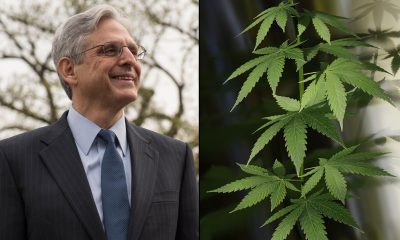Politics
Where Presidential Candidate Amy Klobuchar Stands On Marijuana
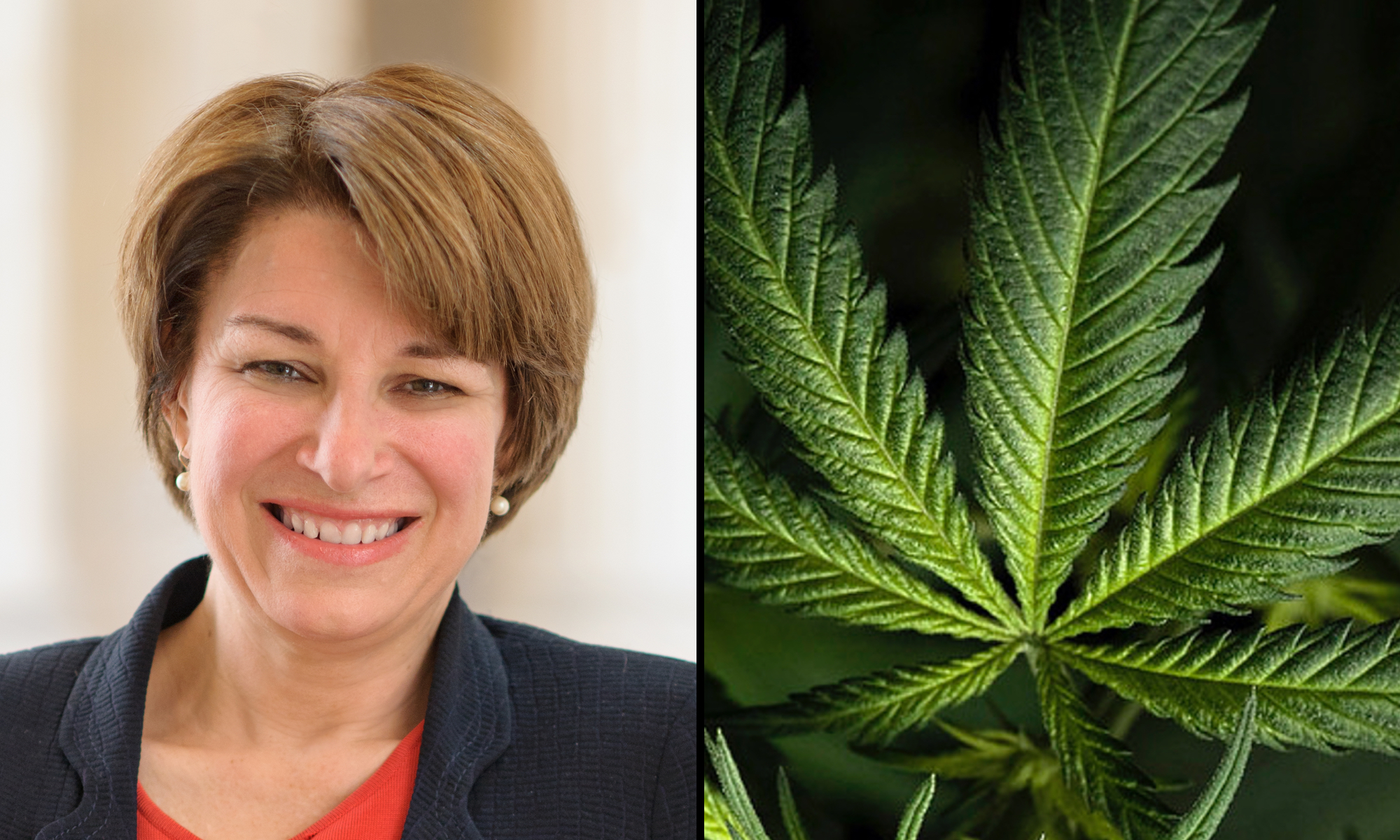
Sen. Amy Klobuchar (D-MN) announced on February 10, 2019 that she was running for the Democratic Party’s 2020 presidential nomination and dropped out on March 2, 2020.
The former prosecutor has not been especially outspoken about marijuana, but her support for certain reform legislation has earned her a “B” grade from NORML. Here’s more on where she stands on the issue.
This piece was last updated on March 2, 2020 to include the candidate’s statements and policy actions on marijuana since joining the race. It will continue to be updated on a rolling basis.
Legislation And Policy Actions
Klobuchar hasn’t introduced any cannabis bills herself, but she has signed onto a handful of pieces of marijuana legislation that her colleagues have filed.
In the 116th Congress, she cosponsored legislation to protect banks that service state-legal cannabis businesses from being penalized by federal regulators and a bill to expand research into marijuana and its constituents.
She’s a cosponsor of the Strengthening the Tenth Amendment Through Entrusting States (STATES) Act, which would amend the Controlled Substance Act to exempt states that have legalized cannabis from federal intervention. That bill was sponsored by presidential rival Sen. Elizabeth Warren (D-MA).
The former prosecutor also put her name on measures designed to expand research into marijuana by increasing the number of facilities permitted to cultivate cannabis for research purposes and require relevant federal agencies to reassess whether cannabidiol (CBD) should remain a controlled substance. Another proposal she cosponsored would remove CBD and “CBD-rich plants” from the definition of marijuana under federal law.
Unlike most of her Senate colleagues who are running for president in 2020, however, Klobuchar has not signed onto the far-reaching Marijuana Justice Act that Sen. Cory Booker (D-NJ) filed to deschedule cannabis and withhold funding from states with discriminatory enforcement.
But she is one of eight senators who signed a letter addressed to then-Attorney General Jeff Sessions, demanding answers about the status of applications to become federally authorized marijuana manufacturers for research purposes.
On The Campaign Trail
Klobuchar was asked at a presidential debate in February whether she felt a plan by rival candidate Sen. Bernie Sanders (I-VT) to immediately legalize marijuana and expunge prior convictions was realistic.
“It is realistic to want to legalize marijuana. I want to do that too,” she said. “I also think you need to look back at people’s records. You maybe can’t do that on day one, as he said. I think you want a process that you go through because there are too many people that have things on their records that stopped them from getting jobs.”
At an earlier debate, she was pressed on her record as a prosecutor as it concerns drug-related offenses. The senator said she oversaw “one of the most successful drug courts in the country.”
During a town hall event in February, the senator was asked by a voter about racial disparities in marijuana arrests and whether she would pardon people convicted of cannabis charges or move to expunge their records.
“Yes I would,” she said, before pivoting to rather awkwardly discuss Nevada’s current cannabis laws.
“By the way I’m well aware of what this state has done, in Nevada, where you legalized marijuana and where you actually put in place, I think, medical marijuana,” she said. “And you did that when you made some changes to the legislature and the new governor and the like, and so I think it’s really important to look at it as a way of making changes to our drug policy and doing the right thing. And I think that there’s other things we should be doing as well.”
CNN’s Anderson Cooper followed up to press Klobuchar on racial disparities that persisted in the criminal justice system during her time as a prosecutor.
“Anyone who’s worked in the criminal justice system knows there’s institutional racism,” she said, arguing that overall incarceration of African Americans went down 12 percent during her tenure.
“I have supported legalization federally,” Klobuchar said at a town hall event in New Hampshire in November 2019. “Yes, I’ve made that clear.”
Previous Quotes And Social Media Posts
Unlike many of her Democratic colleagues who are entering the 2020 race, Klobuchar rarely talks about cannabis in public. And a search of her Twitter and Facebook accounts turns up zero posts containing “marijuana,” though she did tweet approvingly about the Farm Bill’s inclusion of hemp legalization.
At the ag committee for the farm bill markup! Good safety net for farmers, nutrition and conservation programs…and hemp is in! Mitch McConnell joined markup today and said the bill will go to the floor before 4th of July…(When the corn is knee high)
— Amy Klobuchar (@amyklobuchar) June 13, 2018
Her Senate website contains just one mention of marijuana policy:
“Finally, I have opposed efforts to roll back the Obama Administration policy that the federal government would not interfere with state laws legalizing marijuana, and I cosponsored the STATES Act, bipartisan legislation introduced by Senators Elizabeth Warren and Cory Gardner to protect the ability of states to regulate marijuana,” she said. “I have also cosponsored legislation to make it easier for researchers to study the medical effectiveness and safety of marijuana and cannabidiol, which is used to treat conditions such as epilepsy.”
According to the Internet Archive, an earlier version of that page included a statement expressing support for her home state of Minnesota’s medical cannabis program.
“I support Minnesota’s medical marijuana law for people with cancer, multiple sclerosis, and other approved conditions,” the now-deleted section read just days before she launched her presidential campaign.
“I support the legalization of marijuana and believe that states should have the right to determine the best approach to marijuana within their borders,” Klobuchar told the Washington Post in a statement.
UPDATE from @amyklobuchar: “I support the legalization of marijuana and believe that states should have the right to determine the best approach to marijuana within their borders.” https://t.co/MxAi9XOUwz
— Jacqueline Alemany (@JaxAlemany) February 22, 2019
The support for ending prohibition is a shift from when, in a 1998 debate for Hennepin County attorney, she said, “I am opposed to the legalization of marijuana. I believe when you look at across the world what’s been happening people have realized that legalizing drugs is not the answer.”
As a senator in 2016, Klobuchar questioned a panel of researchers about marijuana, asking whether any particular legal states should serve as a model for others to follow and how to facilitate research into cannabis.
Klobuchar has dedicated several statements to “synthetic marijuana,” which advocates generally regard as a misnomer that conflates natural cannabis with dangerous synthetic chemicals.
Personal Experience With Marijuana
In January 2020, Klobuchar was asked by VICE News when was the last time she smoked marijuana.
“You have to go back to college days,” she said.
Marijuana Under A Klobuchar Presidency
Klobuchar hasn’t signaled strong support for marijuana legalization and her relative silence on the issue indicates that reform would not be an administrative priority if she were elected. However, she hasn’t expressed any support for federal intervention in local marijuana laws and has signed onto legislation to protect the right of states to regulate cannabis. For all intents and purposes, state-legal cannabis would likely be safe under Klobuchar, though she would probably put less political capital into pushing for a formal end to prohibition than other candidates might.
Where Presidential Candidate Cory Booker Stands On Marijuana




